Blog

#bioPGH Blog: BioBlitz 2023 Results!
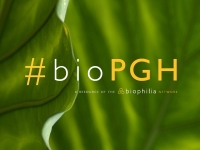 A resource of Biophilia: Pittsburgh, #bioPGH is a weekly blog and social media series that aims to encourage both children and adults to reconnect with nature and enjoy what each of our distinctive seasons has to offer.
A resource of Biophilia: Pittsburgh, #bioPGH is a weekly blog and social media series that aims to encourage both children and adults to reconnect with nature and enjoy what each of our distinctive seasons has to offer.
The sky was a perfect blue, the weather was beautiful, the plants seemed extra green, and nature enthusiasts of all ages were out in full force at this year’s BioBlitz this past weekend!
What is a bioblitz?, one might ask. In the most traditional scientific sense, a bioblitz is an event that unites scientists and community members to identify as many living things in a given area over a set time frame. It truly is a mad dash, or a “blitz,” to quickly identify everything possible. Scientists can then use the data to better understand the health of the local ecosystem and keep a record of the living things in the study area.
Our BioBlitz and Family Fun Festival combines the science of a bioblitz with the joy of celebrating wild wonders. All day Sunday, the front of lawn of Phipps was bustling with an assortment of local scientists and naturalists, all sharing their work and chatting about the biodiversity of wild Pennsylvania. If you weren’t able to join us for the big day, check out what the excitement was all about!
Local Scientists and Naturalists
A variety of local researchers and naturalists were present from universities and non-profits across the city. Each of them brought activities and demonstrations to help demonstrate their work, many led themed nature walks into Schenley Park throughout the day to explore birds, snails, spiders, fish, plants, fungi, and everything in between! There were also two botanical illustration classes to merge the worlds of art and science – not to mention sharpen those observation skills.
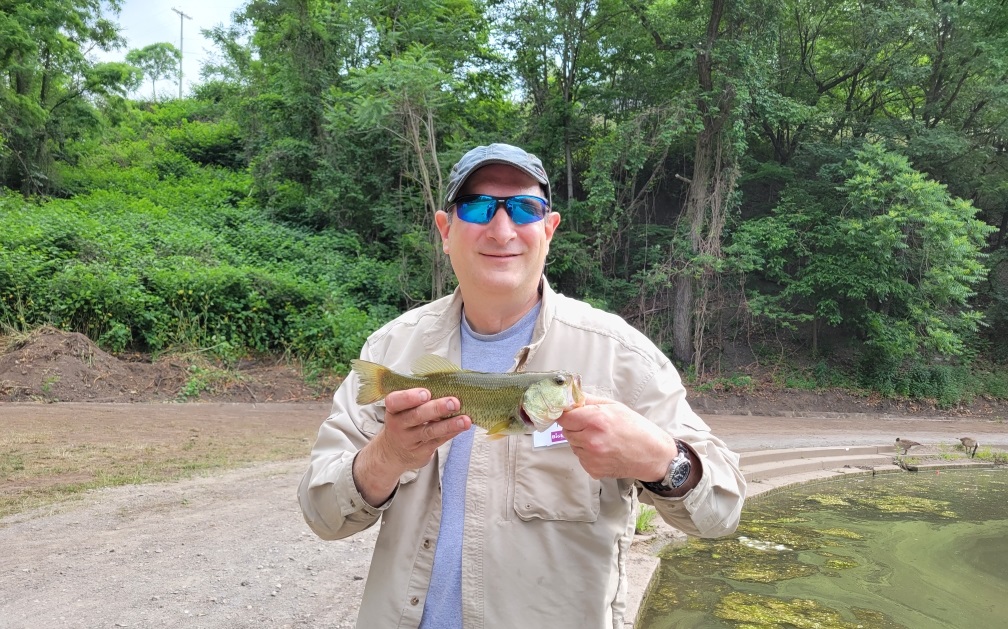
Dr. Brady Porter of Duquesne University surveyed the lake in Schenley Park for fish!
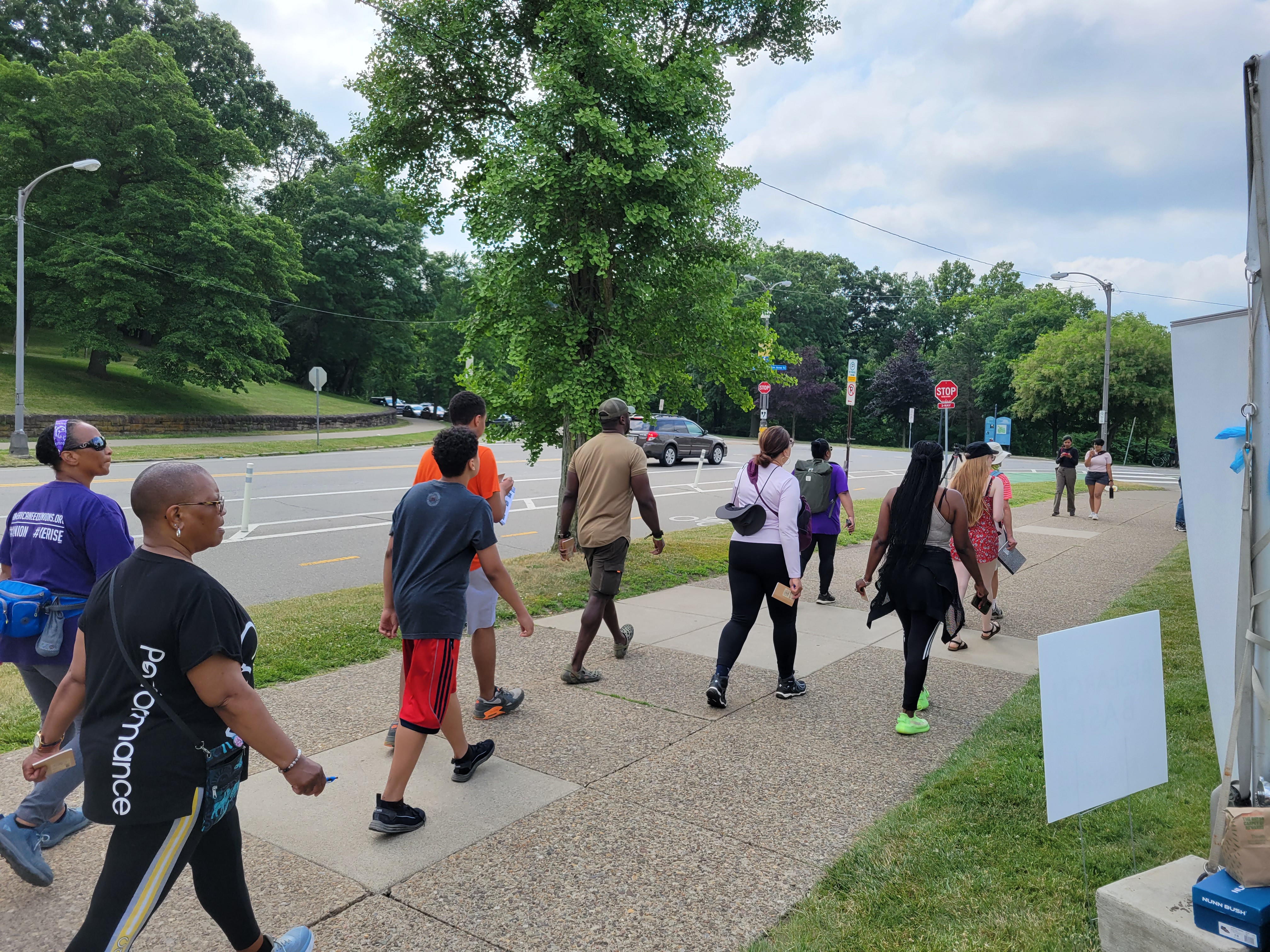
Local Outdoor Afro leader Kim Refosco leads her group into Schenley Park for a journaling sensory walk.
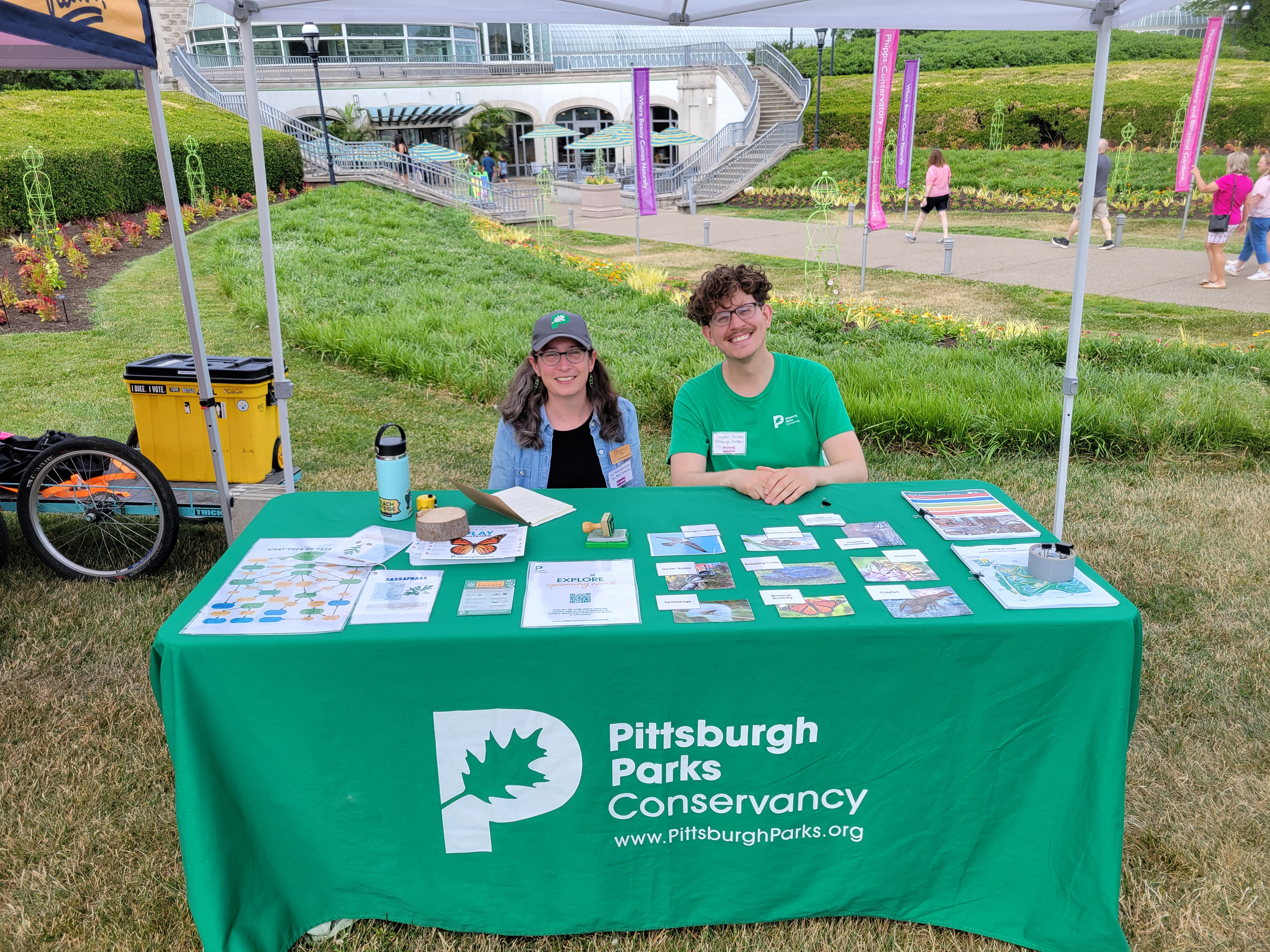
Jen Schnakenberg and Stephen Bucklin from the Pittsburgh Parks Conservancy
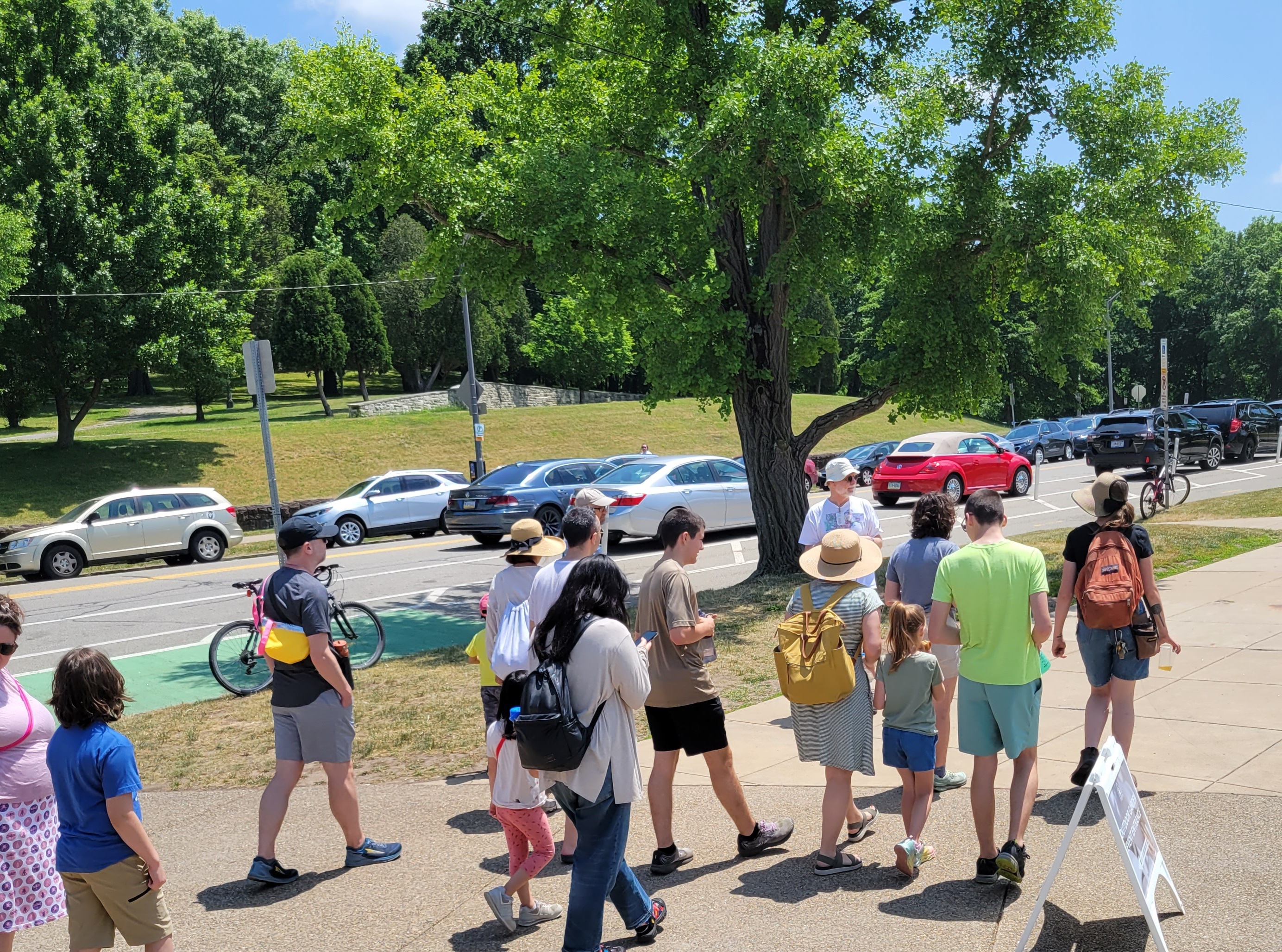
The TikTok shell-ebrity himself, Dr. Tim Pearce from the Carnegie Museum of Natural History leds his walking group into Schenley Park to look for snails.
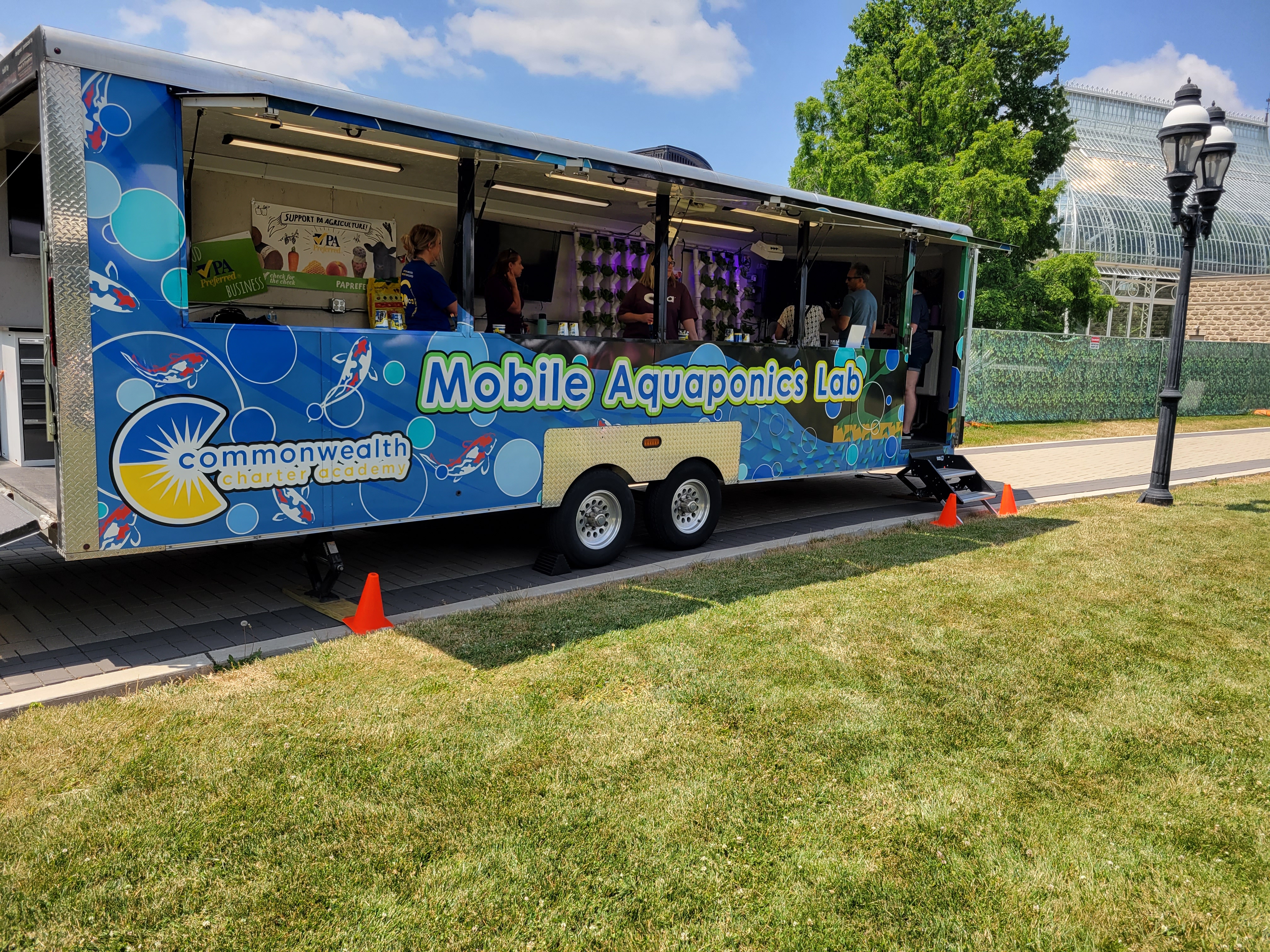
Mobile Aquaponics Lab from Commonwealth Charter Academy
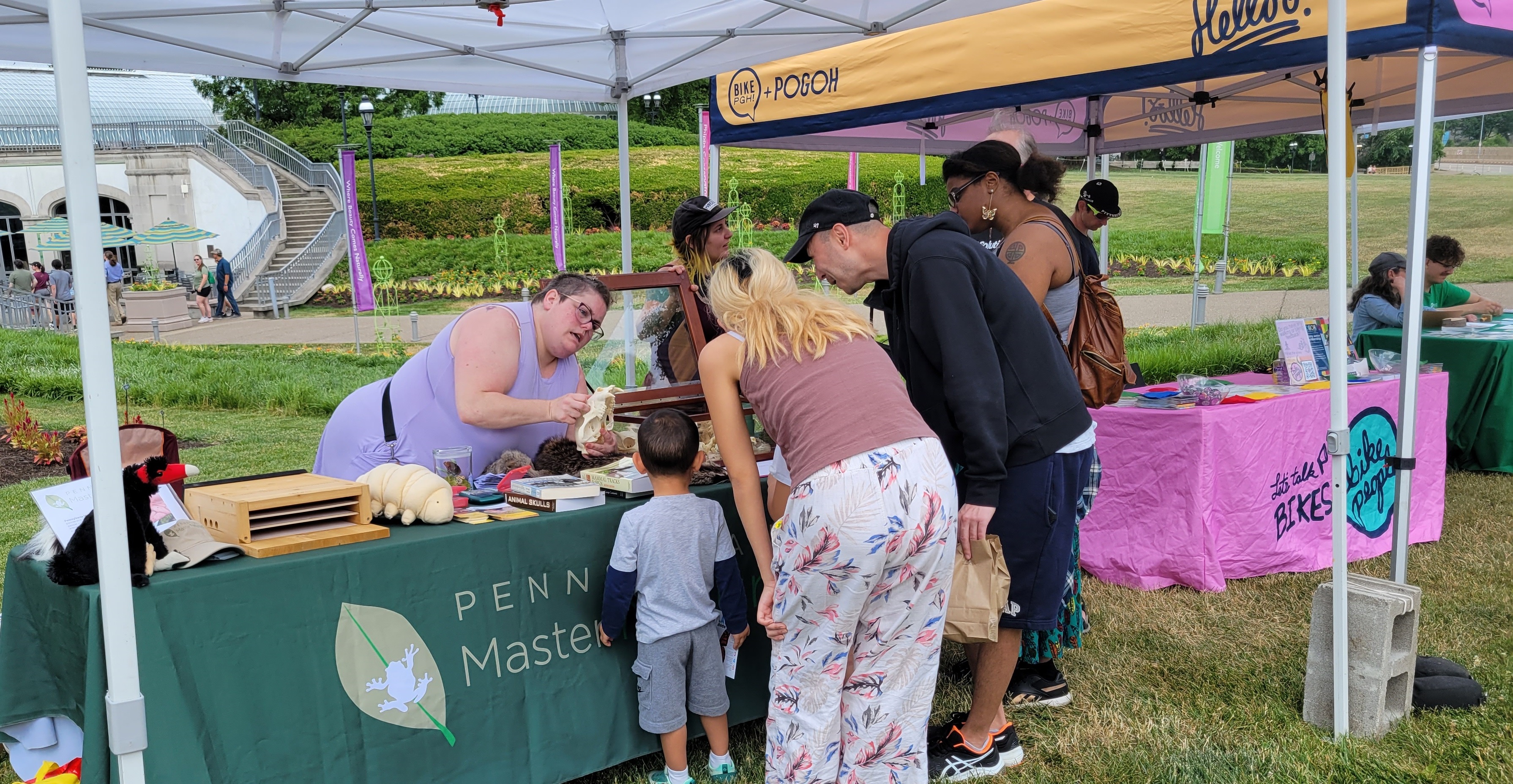
Master Naturalists share biofacts with BioBlitz attendees!
New Activity!
New to this year, BioBlitz included a bat survey night hike! Researchers from GAI Consultants joined us Saturday night in Schenley to set up mist nets to collect and document any bats flying about, and five big brown bats (Eptesicus fuscus) were collected! The bats were recorded for species presence, and they were examined for overall health and released back into the park.
Important to note since this activity was more involved than many others – the consulting team we worked with has federal permits to survey bats, in addition to being trained in safe bat handling, and they were all vaccinated for rabies. To conduct a survey in Schenley Park, Phipps received permission from the City of Pittsburgh and Parks Conservancy in addition to notifying the city park rangers and our local zone of Pittsburgh police.
Data Collection
The key of a bioblitz is the total data collection! With the notable exception of last year, BioBlitz has recorded of the biodiversity of Schenley Park since 2016, as you can see from the graph below:
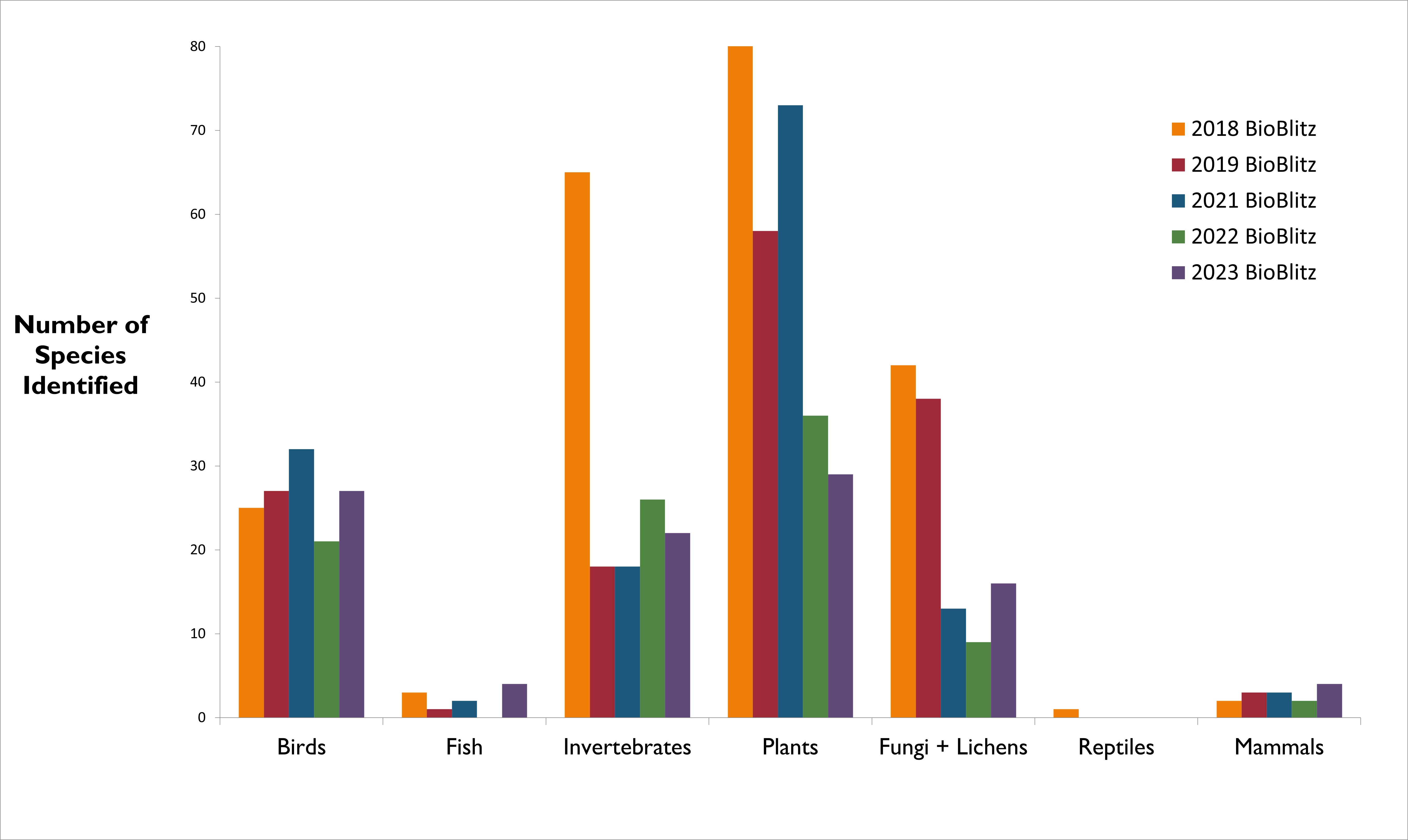
There is some variation year to year depending on what scientists were present.
The complete species list is below! If you’re reading this home, how might these species counts change if we held this event at different times of the year? What groups might stay the same? Which ones would be different? Which groups might more or fewer species at a different time of year?
Birds
Acadian Flycatcher
American Robin
Baltimore Oriole
Blue Jay
Canada Goose
Carolina Chickadee
Carolina Wren
Chimney Swift
Common Grackle
Downy Woodpecker
Gray Catbird
House Finch
House Sparrow
Mourning Dove
Northern Cardinal
Northern Flicker
Northern Rough-winged Swallow
Red-eyed Vireo
Red-tailed Hawk
Red-winged Blackbird
Rose-breasted Grosbeak
Ruby-throated Hummingbird
Scarlet Tanager
Song Sparrow
Tufted Titmouse
Wood Thrush
Yellow Warbler
Fish
Bluegill
Hybrid Bluegill x Pumpkinseed
Largemouth Bass
Pumpkinseed
Plants
Aesculus
Canada thistle
Cattail (Typha sp.)
Common dandelion
cypress family
Deutzia
Garlic mustard
Goutweed
Grapevine
Honeysuckle
Horse chestnut
Ivy-leaved toadflax
Japanese knotweed
jetbead
Kentucky yellowwood
moth mullein
Mugwort
Oakleaf hydrangea
Pepperweeds
Poison ivy
Red oak
Seductive entodon moss
Sweet Mock Orange
Sycamore
Tree of heaven
Virginia creeper
White clover
White oak
Fungi+Lichen
Bare-bottom Sunburst Lichen
Candleflame Lichen
Common Goldspeck
Dryad's Saddle
Field and button mushrooms
Fluffy Dust Lichen
Hooded Sunburst Lichen
Mortar Rim Lichen
Plitt's Rock Shield
Pom-pom Shadow Lichen
Powdered ruffle lichen
Powdery-margined Cryptic Shade Lichen
Rosette lichen
Rosette lichens, frost lichens, and allies
Sidewalk firedot
Splitgill mushroom
Mammals
Chipmunk
Eastern cottontail
Big brown bat
White tailed deer
Amphibians
Bullfrog
Invertebrates
Amphipods
Ant (sp. Unknown)
Bipalium pennsylvanicuan
Bumblebee
Common Whitetail
Dragonflies
Earthworm
Earthworm
Eastern Forktail
Eastern Pondhawk
Flatworm
Gerrini
Honey bee
Isopod
Little Black Caddisflies
Mayflies
Millipedes
Planaria
Spotted Lanternfly
BioBlitz is held on an early Sunday in June every year – if you missed us this year, keep an eye out for 2024!
This day would not have been possible without a dedicated group who helped make BioBlitz happen. Thank you to scientists, naturalists, educators, and volunteers of the Carnegie Museum of Natural History, Allegheny Land Trust, Pittsburgh Parks Conservancy, Outdoor Inclusion Coalition, Commonwealth Charter Academy, the Western Pennsylvania Mushroom Club, Outdoor Afro, the University of Pittsburgh, Pennsylvania Master Naturalists, BikePGH, and GAI Consulting.
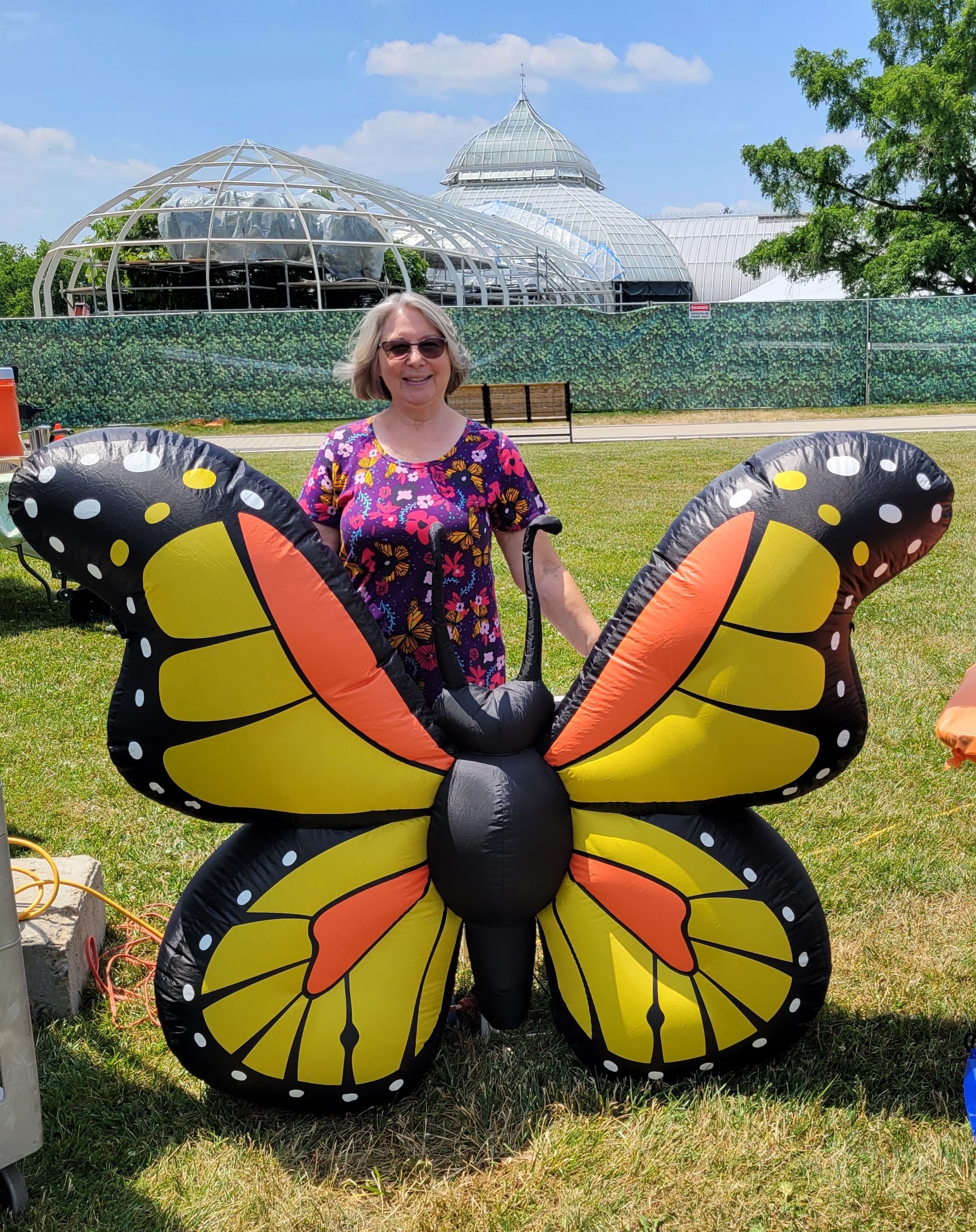
Monarch expert June Bernard with next to her table.

